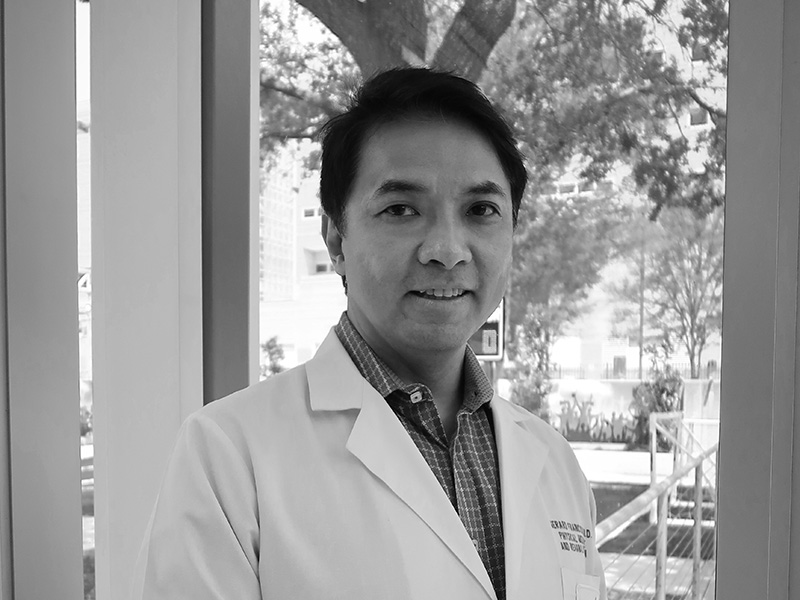Gerard Francisco, MD

Professor and Chair, Department of Physical and Rehabilitation Medicine
Wulfe Family Chair in Physical Medicine and Rehabilitation
These have been the most challenging times for us, and as we are navigating through, we are learning how to respond and feeling more comfortable. Clinically, we have learned a lot. Logistically, we recognize that we have underutilized telemedicine.
The pandemic also sadly highlighted social, economic, and racial disparities even more. While our hospital, TIRR Memorial Hermann, has a wonderful set up and some of our well-to-do patients can access it without difficulty, we have those without smartphones or the internet or those who have cognitive difficulty using technology. These issues were uncovered in Houston. The physical, financial, personal, and emotional resources of our patients became more raw – they were more exposed to us. That was one area we were not ready to deal with.
“Clinically, we have learned a lot. Logistically, we recognize that we have underutilized telemedicine.”
The second area that was exposed during this time – in a positive way – was our department’s collegiality. I’m fortunate that our faculty work well together, and I’ve always wanted us to have a family-like atmosphere. This camaraderie really helped us during the tough times. And at one point, six of our faculty and residents had COVID. The faculty helped each other out as they isolated and recovered – organizing a meal train, volunteering to cover shifts – I never had to step in to assign shifts. People were so supportive of one another, which helped our department emotionally and mentally. But we still missed seeing each other as we are a social group. Before the pandemic, I would take the faculty and residents to dinner once a quarter to just visit – no business talk. I take pride in knowing our faculty and fellows very well. During the pandemic we had to get creative to do things differently – I sent meals to the residents, and we had virtual get-togethers, but it wasn’t as good as talking in the same room. We did a virtual happy hour during the holidays to catch up with everyone.
The pandemic also uncovered some big divides – pro-vaccine, anti-vaccine; Republican, Democrat; pro-mask-anti-mask. I wish we had more unifying or inspiring national leadership to get people to work well together. Other countries were able to get better control over the pandemic early on through lockdowns and discipline.
I am very proud about how our well our Medical School and University responded. I never felt alone. The chairs had phone calls two or three times a week. And while other universities had to downsize or reduce salaries, our leaders were creative and were able to meet our financial needs by having us donate vacation days. This accomplished two things – it didn’t demoralize employees by taking something away from them, and it empowered employees by making them a part of the solution. I am very proud of how McGovern Medical School at UTHealth handled the pandemic – putting the value on people.
